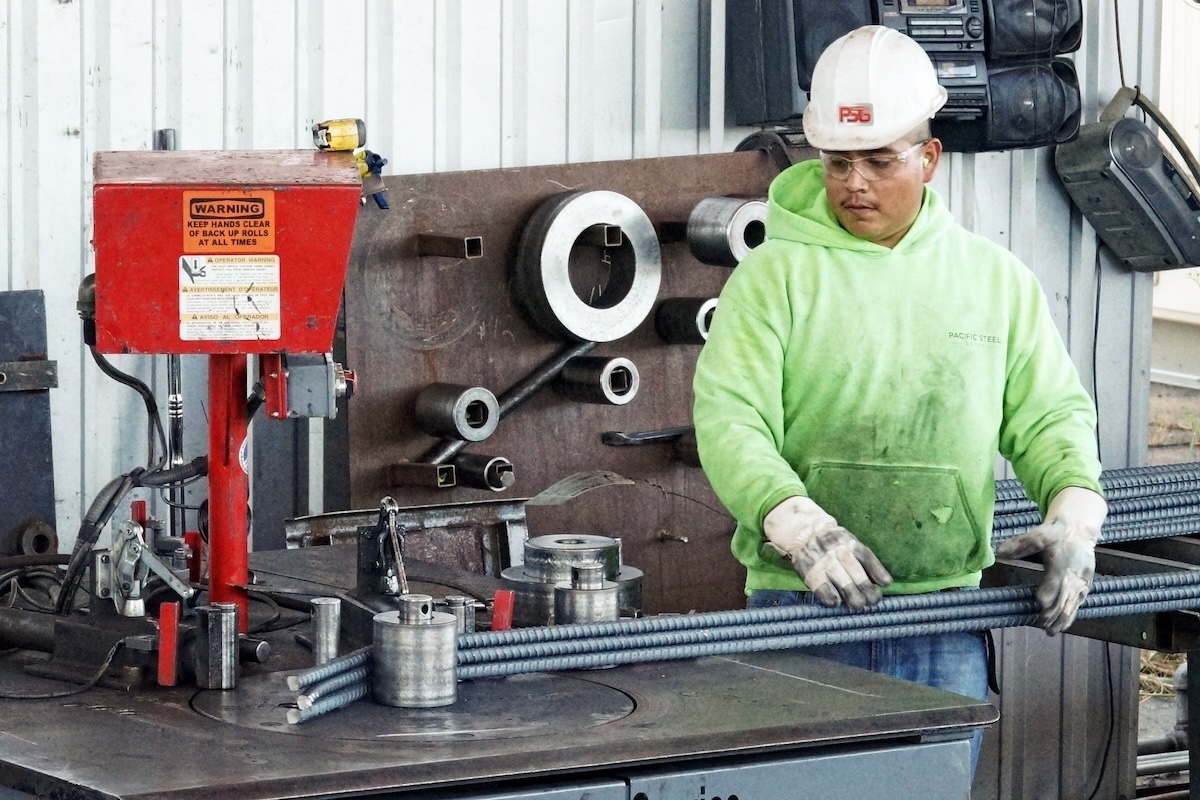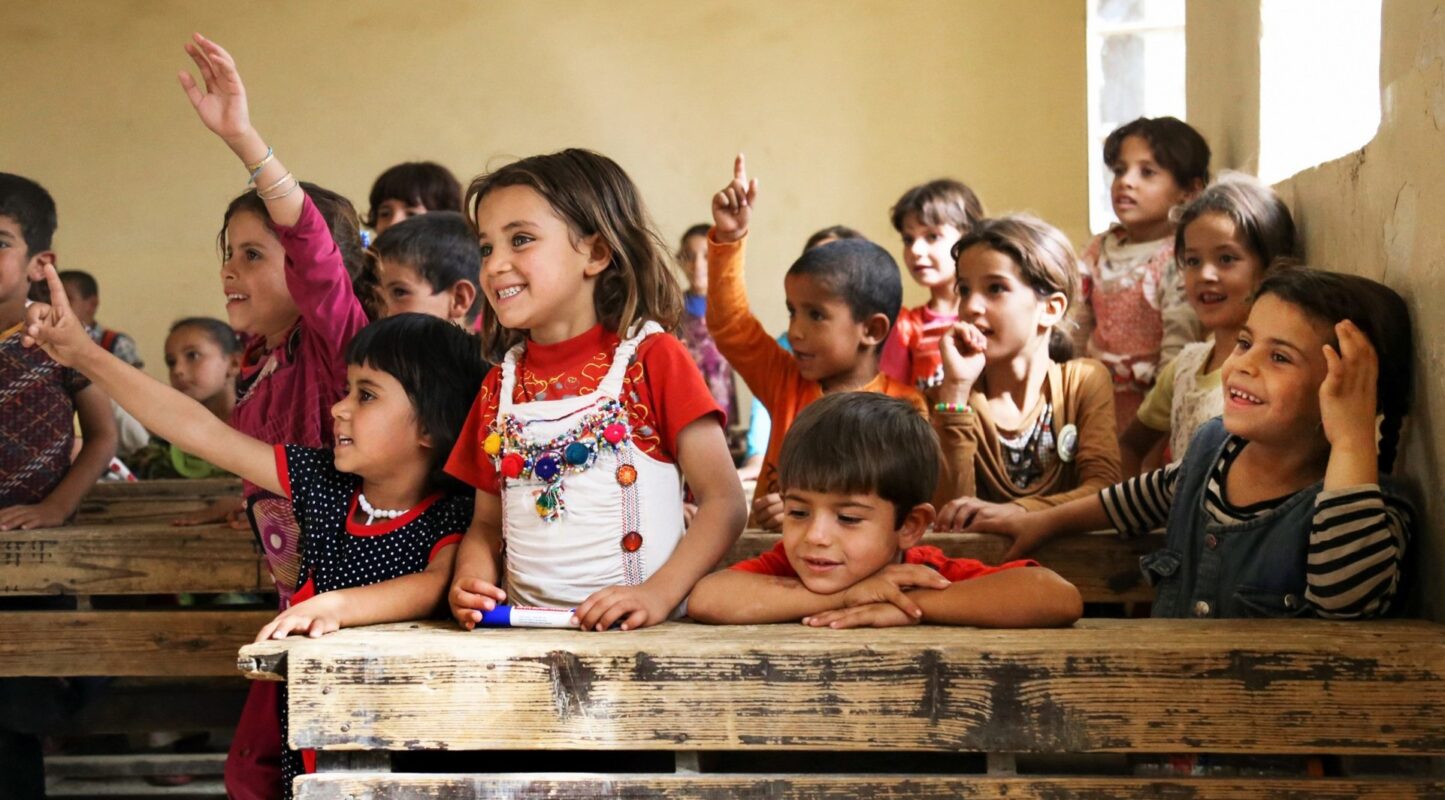TGIF, Agents of Impact!
- Roundup: Spectrum of strategies, from resistance to rapprochement
- Agent of Impact: Lightsmith Group’s Jay Koh on investing in adaptation
- Spotlight: Donald Trump Jr. turns impact investor to court conservative consumers
🗣 Plot preview. Some of his early personnel choices may make it seem like President-elect Donald Trump is casting a new Netflix series rather than staffing a government. What roles will Agents of Impact play in the dramatic new season? On our Call on Monday, “New realities, new narratives,” we’ll preview plotlines that already are taking shape (RSVP now). Impact investing champion Antony Bugg-Levine will make the case for “investing in America.” Freedom Economy’s Rachel Robasciotti will connect the pursuit of a strong economy for all with the legal defense of justice and sustainability investors. And Partners in Equity’s Wilson Lester will lay out “the North Carolina model” for broad-based ownership and equitable wealth building. Contributing editor Imogen Rose-Smith didn’t mince words in her latest Institutional Impact column. From resistance to rapprochement, we don’t have to agree on a single strategy. Let me know if you have a crisp call to action and we’ll add you to the lineup.
Meanwhile, the work continues. Private equity investors are shoring up their portfolio companies to maintain the momentum of the energy transition despite political headwinds, as ImpactAlpha’s Snehal Shah reported from this week’s SuperReturn conference in New York. In the face of a likely US retreat, Brazil, China and even Azerbaijan are claiming climate leadership, Amy Cortese writes in her roundup on COP29. I spoke with Heading for Change’s Sana Kapadia on the crucial role for women’s leadership at “the finance COP.” From Baku, Lightsmith Group’s Jay Koh told Amy he’s seeing the emergence of “a coalition of the serious” (see below). “If you’re serious about this problem, then let’s get together and make something really happen now,” he said. “And I think the serious folks are going to do that, no matter what.”
In Africa, philanthropists and even pension funds are building a pipeline of local capital for sustainable economic growth and resilience, Lucy Ngige reports. Back in the US, nonprofit hospitals are finding ways to invest in “social determinants of health,” like housing, food and neighborhood safety, contributor Ibrahim Rashid explains in a guest post. From tangible improvements in working class livelihoods to taking on the industrial food complex, opportunities for progress remain. There are all kinds of people still in the fight, and there’s all kinds of work to be done, I told host Brian Walsh on this week’s Impact Briefing podcast. Maybe we can play a little role in keeping folks talking to each other. – David Bank
The Week’s Podcast
🎧 This Week in Impact. Host Brian Walsh takes up ImpactAlpha’s top stories with editor David Bank. Up this week: The search is on for global climate leadership at COP29; how hospitals are partnering with community lenders to invest in “the social determinants of health”; and, a look at recent impact deals for electricity transmission and storage in India and lithium extraction and battery recycling in Germany.
- Listen to the new episode of This Week in Impact. Get the podcast in your feed by subscribing on Apple or Spotify.
The Week’s Agent of Impact
Jay Koh, the Lightsmith Group: Financing climate adaptation and resilience. When Jay Koh cofounded the Lightsmith Group in 2016, few people were talking about the need to invest in solutions to help people adapt to a changing climate. Eight years later, “climate adaptation” is the topic du jour. The dark irony: the worse the climate catastrophe gets, the more valuable climate adaptation solutions become. What Koh calls the “unavoidable opportunity” is commanding new attention from development finance institutions, pension and insurance funds and impact investors. “We’re seeing increased amounts of investor interest in adaptation and climate resilience, because the reality of climate impact is becoming greater year on year on year,” Koh told ImpactAlpha from Baku, Azerbaijan, where the COP29 climate summit is underway (see, “Global climate leadership at COP29 shifts to China, Brazil – and Azerbaijan”).
- Scaling adaptation. Lightsmith’s annual COP side event on resilience has grown from “a tiny bunch of people having a couple of drinks and a dinner,” he says, to “a ballroom full of people really talking about how to make transactions happen.” The firm, which also operates a $186 million adaptation-focused venture fund, this week announced $2.6 million in grants to develop what Koh is calling “a virtual green bank for adaptation.” The idea for Systemic Capital for Adaptation Localization and Expansion, or SCALE, is to offer a full range of debt, equity and technical assistance to companies building adaptation solutions, from AI-enabled satellites to predict wildfire risk, to precision agriculture tech to boost crop yields, to new insurance solutions.
- Collective goal. Negotiators at COP29 are working to set a “new collective quantified goal” for advanced economies to finance the mitigation and adaptation efforts of their less developed (and less polluting) peers. Global public adaptation finance flows to low- and middle-income countries were just $28 billion in 2022. Up to $359 billion per year is needed for adaptation alone, the UN estimates. Institutional investors, Koh says, “are seeing the impact of climate change on their investment portfolios, whether it’s the impact on insurance balance sheets, or the ability to refinance mortgage pools, changes in supply chain impact, healthcare, energy systems – all of these things are now being affected.” Climate adaptation investing, he says, “is an opportunity to do something about what we believe is a pretty clear trajectory.”
- Keep reading, “Jay Koh, the Lightsmith Group: Financing climate adaptation and resilience,” by Amy Cortese on ImpactAlpha.
The Week’s Deal Spotlight
Donald Jr. turns impact investor to bet on an overlooked market: Trump voters. Overlooked founders that target underserved consumers and face ingrained biases that hamper their access to capital. Sounds like the basis for an impact investing fund. That’s apparently what Donald Trump Jr. thought when announcing that he had passed on a role in his father’s incoming administration to join up with the venture capital firm 1789 Capital. The underserved market? Conservative-leaning customers. The overlooked founders? Entrepreneurs seeking to reach them, according to the Palm Beach, Fla.-based firm.
- Woke for conservatives. Investors “typically don’t want to be affiliated with conservative companies,” 1789 founder Omeed Malik told The Wall Street Journal last year. After a rich, ideological benefactor helps launch a conservative company, he said, “there is no institutional support to continue to finance that business.” 1789 is betting that filling that capital gap offers an opportunity to “build American prosperity” and generate outsized returns. Impact alpha, they might call it. Don Jr. has declared “woke is dead.” Far be it for ImpactAlpha to call the strategy “woke.” But no less an authority than Florida Gov. Ron Desantis’s general counsel defines “woke” as “the belief there are systemic injustices in American society and the need to address them.” For Don Jr., it seems, woke is alive and well, as long as the beneficiaries are on the right team.
- Parallel economy. The VC firm, named for the year the Bill of Rights was written, placed its first chips last year in Tucker Carlson’s media company, Last Country. 1789’s goal with the investment, like any impact investment fund manager in a nascent market, is to develop a “proof of concept” for the business model before raising more capital and scaling it up. They even have a term for the firm’s target market: the “parallel economy” of companies that promote so-called conservative values. The addressable market, Malik told the Journal last year: the more than 70 million Americans who voted for Trump. Among the companies that fit the bill are social platform Rumble, veteran-founded Black Rifle Coffee, and Trump’s own Truth Social.
- Keep reading, “Donald Jr. turns impact investor to bet on an overlooked market: Trump voters,” by Dennis Price. Catch up on all of this week’s dealflow reporting on ImpactAlpha.
The Week’s Talent and Jobs
💼 See and share more than a dozen new impact jobs posted this week on ImpactAlpha’s Career Hub and view hundreds of more jobs in impact investing and sustainable finance. Have a job listing to post? Submit it here.
The Justice Climate Fund named Theresa Bedeau, formerly of Capital One, as chief engagement and strategy Officer; Renay Carver, previously with Verint Systems, becomes chief compliance and reporting officer, and Brenda Loya, formerly with BlueHub Capital, becomes chief financial and operating officer. The appointments will help JCF roll out its Clean Communities Investment Accelerator. Shiva Patel was named managing director of JCF’s CCIA Program.
Acre Impact Capital tapped ING’s Michiel de Vries as an advisory board member… Sustainable Capital Advisors added Stacey Jewell, previously with Rewiring America, as a senior associate… Social Capital Partners welcomed Silas Xuereb, a researcher and policy analyst with Canadians For Tax Fairness, as a fellow… Radical Ventures tapped Richa Mehta, previously a principal at ICONIQ Capital, as a partner to lead a specialized AI fund.
That’s a wrap. Have a wonderful weekend.
– Nov. 15, 2024












